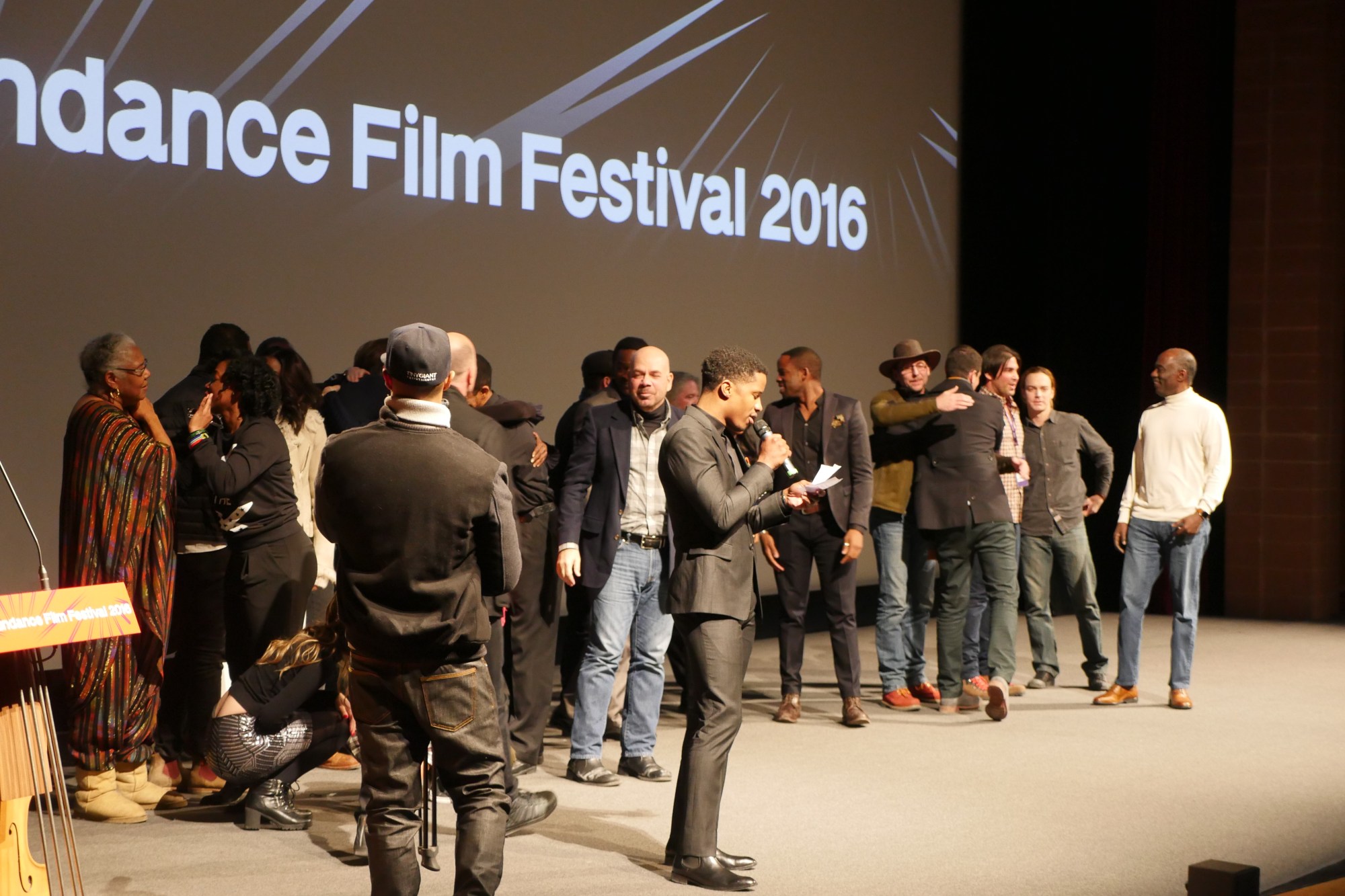
- Festivals
The Birth of a Nation Reclaims A Painful Heritage In History And Film
Nate Parker’s harrowing, moving and ultimately stirring The Birth of a Nation brought audiences to their feet at the Sundance premiere with the tale of Nat Turner’s doomed slave rebellion of 1831, an American Spartacus story that resonates loudly with current events.
The significance of showing a movie titled The Birth of a Nation 100 years after D.W. Griffith’s cinematic masterpiece of the same name was released, was not lost on anyone at the Eccles Theater. Not least the emotional film’s director. "Reclaim it, re-purpose it, reclaim it. We have to heal” said Parker before stepping onto the Eccles stage to face a standing ovation from the capacity crowd.
The original The Birth of a Nation was, of course, a source of controversy from the very beginning. Griffith’s movie tells the story of a Southern and a Northern family as they go through the Civil War, the assassination of Lincoln and Reconstruction. The film depicts black freed men largely as ignorant brutes lusting for white women, gross caricatures played by actors in blackface. The Ku Klux Klan is represented as an order of heroic fighters for white honor – in the wake of the film enrollment in the racist group shot up. At the time the NAACP tried to have it withdrawn because of the painful characterizations, popular demonstrations took place in several cities to protest its release.
For critics, cinephiles and film scholars D.W. Griffith’s picture has always posed a quandary: an obvious work of cinematic genius that radically innovated film narrative techniques, it is also, at its core, fundamentally racist work, a paradox that has proved problematic for critics worldwide, but none more than for African American audiences. For American blacks The Birth of a Nation has remained a painful, visible reminder of the founding of the wrong kind of nation. Hence, the significance of a young black filmmaker reclaiming that title "The techniques he invented at the time are still influential in our filmmaking community" said actor/director Roger Guenevere Smith, who is part of the cast. "However, what he was doing was extremely dangerous in terms of the anti-black propaganda the film contains. So to do this remix in 2016 is an extraordinarily audacious effort on Nate Parker’s part."
Parker was in Sundance four years ago as a cast member of Nicholas Jarecki’s Arbitrage and he impressed us even then as a bright talent, which he has now confirmed behind the camera. Here’s what the director (Parker also plays Turner in the film) told us: "I just wanted to create an agent of change that hopefully can affect change now. There’s a lot of injustice all around us and Nat Turner is a hero of mine because he fought injustice with all the tools he had. For me as a filmmaker the camera is my weapon and film is my ammo. So I just want to use the legacy of slavery to make us think of those systems and how they corrupted us and how we need to heal from the wounds of slavery and other injustices."
The film will resonate loudly today as the country deals with police killings of blacks, the Black Lives Matter movement and the issue of lack of diversity in the film industry. In truth, there could scarcely be a more timely film to emerge from this festival. If Griffith applied his title to the white backlash after reconstruction, Parker purposefully uses it for a tale of uprising. "If we don’t face the trauma of slavery" he told the cheering crowds in Sundance, "we will be perpetually condemned to relive it". The Birth of a Nation promises to contribute to that process and will likely be remembered long after its debut here.
(Read our review here; and how the film broke a Sundance record, here or listen to our interview with Nate Parker here.)
Luca Celada

